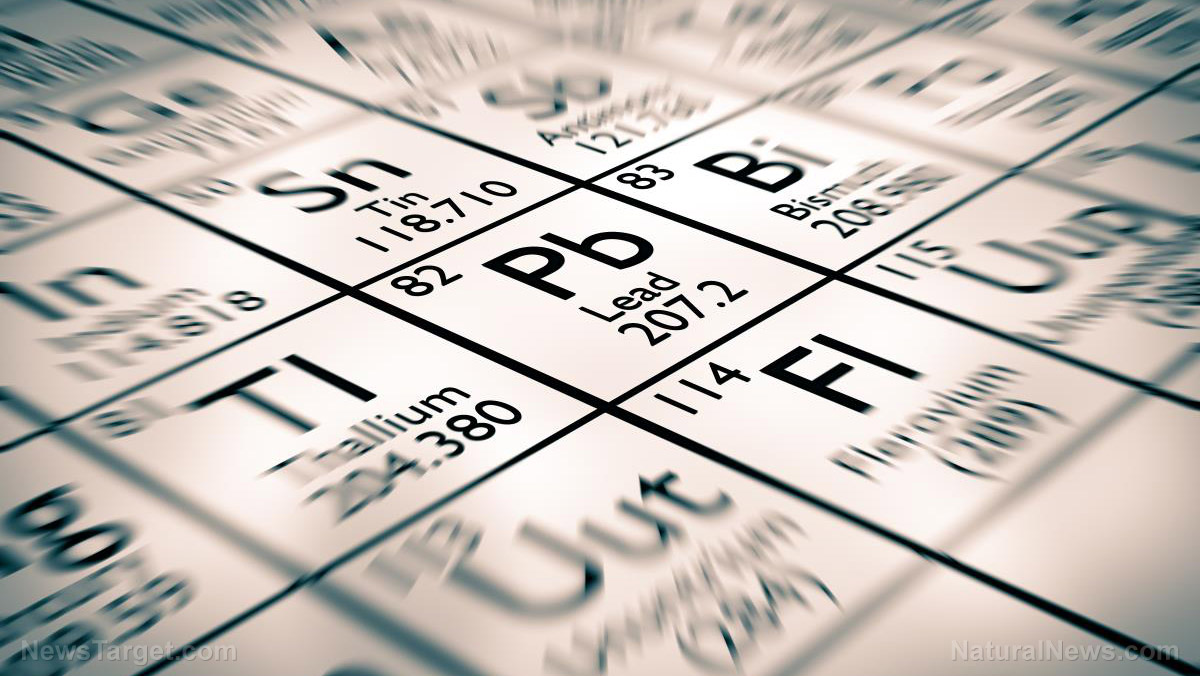Synthetic human DNA project sparks ethical alarms amid fertility crisis
07/08/2025 / By Willow Tohi

- U.K. scientists aim to synthesize human DNA by 2030, aiming to combat diseases but raising fears of “designer babies” and a synthetic “replacement race.”
- Global sperm counts have fallen 50% since the 1970s, with microplastics and environmental toxins linked to declining fertility.
- Critics warn synthetic DNA technology risks bioengineered warfare, eugenics, or unintended ecological disasters.
- Microplastics now found in human brains, tissues and reproductive fluids, raising alarms about health impacts.
- Ethicists urge caution, arguing “playing God” with human genetics could erode human dignity and lead to catastrophic consequences.
In July 2025, British scientists embarked on a controversial quest to synthesize the entire human genome from scratch, raising urgent ethical questions about humanity’s future. The $13.7 million project, led by Oxford University, seeks to create synthetic DNA to combat diseases and address a global fertility crisis, but critics warn it risks crossing a moral Rubicon. With sperm counts halving since the 1970s and microplastics accumulating in human tissues, the drive for lab-made solutions may unleash irrevocable consequences. As the documentary Playing God highlighted, this research could redefine life itself—or spell its undoing.
The science and the stakes: A synthetic DNA breakthrough or a biological time bomb?
The project’s stated goals include developing therapies for autoimmune disorders, heart failure and aging. Scientists plan to build synthetic DNA segments and insert them into skin cells, a process likened to “rewriting the genetic code from scratch.” By constructing entire chromosomes, researchers hope to unlock insights into how faulty genes trigger diseases and, eventually, repair them.
Yet unease looms. “The genie is out of the bottle,” warns University of Edinburgh geneticist Prof. Bill Earnshaw. “If an organization with the right equipment decided to start synthesizing anything, I don’t think we could stop them.” Ethicist Dr. Pat Thomas adds, “The science can be repurposed to harm and even for warfare.”
Historical precedents, like the 2010 creation of Synthia (the first synthetic bacterium), show progress can outpace ethics. But human DNA, with its 3 billion base pairs, is exponentially more complex. The project’s five-year timeline—culminating in a synthetic chromosome—leaves little room for reflection.
Why the rush to reinvent humanity?
The urgency stems from alarming trends. Global sperm counts have dropped 50% since 1970, according to studies led by Hebrew University’s Hagai Levine. Environmental pollutants, plastics and electromagnetic radiation are prime suspects. A 2024 study revealed human brains now harbor “a spoon’s worth” of microplastics, with levels rising sharply in recent years. Plastic particles also turn up in reproductive fluids, impairing egg and sperm quality.
“This is an existential problem,” asserts Robert F. Kennedy Jr. “A teenager today has less testosterone than a 68-year-old man.” With infertile populations growing, some nations eye synthetic solutions: lab-grown “designer babies” or artificial wombs. But critics argue this abandons real-world solutions, like curbing plastic waste or curbing toxins, in favor of risky “fixes.”
Ethics and morality: At what cost to humanity?
The project’s social research component—a nod to ethical scrutiny—is seen as insufficient by many. “We’re talking about creating life itself,” says Prof. Iain Brassington. “Would synthetic humans have souls? Are we playing dice with our species’ future?”
Theologians and bioethicists highlight profound spiritual implications. “God’s creation is sacred,” insists Rev. Jane Whitaker, director of the Coalition for Ethical Science. “Synthetic DNA treats humans as products, not beings made in God’s image.” Meanwhile, the libertarian Cato Institute warns of eugenic abuses: “A future where elites engineer ‘superior’ humans?”
The environmental risks are equally stark. Engineered organisms—like bacteria designed to digest microplastics—could mutate unpredictably. “A lab accident or rogue release could trigger ecological collapse,” cautions Dr. Elena Petrova of Greenpeace.
A crossroads for science and civilization
As synthetic biology accelerates, society faces a pivotal choice: advance cautiously or plunge into uncharted bioethical terrain. The scientists’ optimism about curing diseases clashes with fears of a brave new world where humanity’s very essence is manufactured. With each breakthrough, the proverbial Pandora’s box swings wider.
“It’s not just about science—it’s about what we value,” states ethicist Dr. Thomas. “If we lose our humanity in pursuit of perfection, what have we truly gained?” The clock is ticking, but so far, consensus on the costs—and morals—of synthetic life remains elusive.
Sources for this article include:
Submit a correction >>
Tagged Under:
Censored Science, Collapse, Dangerous, depopulation, disease, environ, ethical alarm, fetility crisis, men's health, microplastics, population control, research, sperm counts, synthetic DNA, toxins
This article may contain statements that reflect the opinion of the author
RECENT NEWS & ARTICLES
COPYRIGHT © 2017 COLLAPSE.NEWS
All content posted on this site is protected under Free Speech. Collapse.news is not responsible for content written by contributing authors. The information on this site is provided for educational and entertainment purposes only. It is not intended as a substitute for professional advice of any kind. Collapse.news assumes no responsibility for the use or misuse of this material. All trademarks, registered trademarks and service marks mentioned on this site are the property of their respective owners.





















